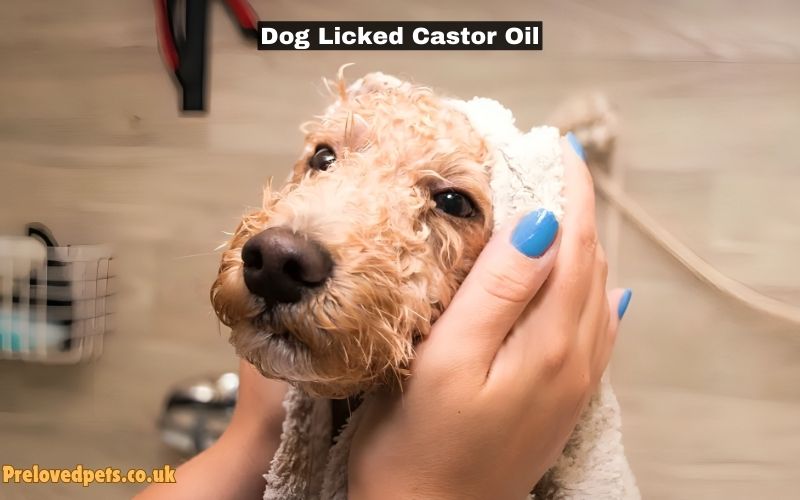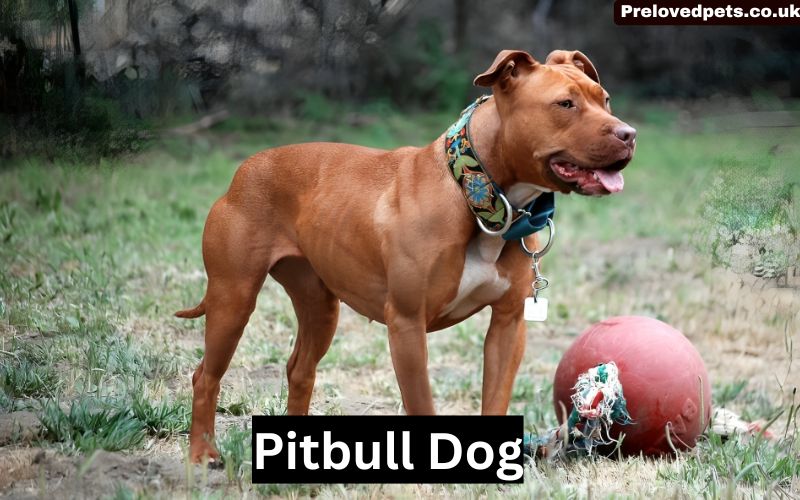As a pet owner, it’s not uncommon to come across scenarios where your dog has ingested something they shouldn’t have. One such incident that might cause concern is if your dog licks castor oil. While castor oil is known for its various health benefits for humans, its effect on dogs can be quite different. In this article, we will explore what castor oil is, its uses, potential risks for dogs, and what to do if your dog licks castor oil.
What is Castor Oil?
Castor oil is a vegetable oil obtained by pressing the seeds of the castor plant (Ricinus communis). It has been used for centuries in various cultures for its medicinal properties. Castor oil is rich in ricinoleic acid, a fatty acid that is believed to be responsible for most of its health benefits. Some common uses of castor oil include:
- Laxative: Castor oil is known for its powerful laxative effect and is often used to relieve constipation.
- Skin Care: It is used in various skincare products due to its moisturizing and anti-inflammatory properties.
- Hair Care: Castor oil is also popular in hair care products for promoting hair growth and preventing hair loss.
- Anti-Inflammatory: It has anti-inflammatory properties and is sometimes used to treat joint pain and inflammation.
Is Castor Oil Safe for Dogs?
While castor oil has various uses for humans, its safety for dogs is a different matter. Castor oil can be toxic to dogs, especially in large quantities. The primary concern with castor oil ingestion in dogs is its strong laxative effect, which can lead to severe gastrointestinal upset. Here are some potential risks associated with dogs licking or ingesting castor oil:
Gastrointestinal Upset
One of the most immediate effects of castor oil ingestion in dogs is gastrointestinal upset. This can manifest as:
- Diarrhea: The strong laxative effect of castor oil can lead to diarrhea, which can be severe and persistent.
- Vomiting: Ingesting castor oil can cause vomiting, which can further exacerbate dehydration and electrolyte imbalances.
- Abdominal Pain: Dogs may experience abdominal pain and cramping due to the irritant properties of castor oil.
Dehydration
Due to the severe diarrhea and vomiting that castor oil can cause, dehydration is a significant concern. Dogs can lose a substantial amount of fluids and electrolytes, which can lead to serious health issues if not addressed promptly.
Toxicity
While the ricinoleic acid in castor oil is the primary concern for gastrointestinal upset, the seeds of the castor plant contain a highly toxic compound called ricin. Ricin is one of the most potent toxins known and can cause severe poisoning. Although commercially available castor oil is processed to remove ricin, there is still a risk of contamination or residual toxicity, especially if the oil is not from a reputable source.
Symptoms of Castor Oil Poisoning in Dogs
Understanding the symptoms of castor oil poisoning can help you act quickly if your dog ingests this substance. Here are some signs to watch for:
- Gastrointestinal Symptoms: Diarrhea, vomiting, and abdominal pain are the most common signs of castor oil poisoning.
- Lethargy: A dog that appears unusually tired or unresponsive may be suffering from poisoning.
- Loss of Appetite: Dogs may refuse to eat if they are experiencing gastrointestinal distress.
- Dehydration: Symptoms of dehydration include dry gums, sunken eyes, and decreased skin elasticity.
- Weakness: Muscle weakness or unsteadiness can occur as a result of severe dehydration or toxicity.
- Tremors or Seizures: In severe cases, poisoning can lead to neurological symptoms such as tremors or seizures.
What to Do If Your Dog Licks Castor Oil
If your dog has licked or ingested castor oil, it is essential to take immediate action to ensure their safety and well-being. Here are the steps you should follow:
1. Assess the Situation
- Amount Ingested: Try to determine how much castor oil your dog has ingested. A small lick may not be as concerning as ingesting a large amount.
- Observe Symptoms: Monitor your dog for any signs of gastrointestinal upset, such as vomiting, diarrhea, abdominal pain, or lethargy.
2. Contact Your Veterinarian
- Call Your Vet: Contact your veterinarian as soon as possible for advice. Provide them with information about the amount of castor oil ingested and any symptoms your dog is experiencing.
- Follow Instructions: Follow your veterinarian’s instructions carefully. They may recommend bringing your dog in for an examination or suggest specific treatments to manage the symptoms.
3. Prevent Further Ingestion
- Remove Access: Ensure that your dog does not have access to any more castor oil. Store it securely out of reach of pets.
- Clean Up: Clean any areas where the castor oil may have spilled to prevent your dog from licking it again.
4. Provide Supportive Care
- Hydration: Ensure your dog stays hydrated. Offer small amounts of water frequently to help prevent dehydration.
- Rest: Encourage your dog to rest and avoid any strenuous activity while they recover.
When to Seek Emergency Veterinary Care
In some cases, ingestion of castor oil can lead to severe symptoms that require immediate veterinary attention. Seek emergency veterinary care if your dog exhibits any of the following symptoms:
- Severe Vomiting or Diarrhea: If your dog is experiencing persistent or severe vomiting or diarrhea, they may need medical intervention to manage dehydration and electrolyte imbalances.
- Weakness or Lethargy: If your dog appears weak, lethargic, or unresponsive, it could be a sign of severe dehydration or toxicity.
- Abdominal Pain: If your dog is showing signs of significant abdominal pain, such as whining, crying, or a hunched posture, seek veterinary care immediately.
Treatment Options for Castor Oil Poisoning
If your dog has ingested castor oil and is showing symptoms of poisoning, your veterinarian may recommend several treatment options. These can include:
1. Inducing Vomiting
If the ingestion was recent, your veterinarian might induce vomiting to expel the castor oil from your dog’s stomach. This is typically done using a medication that stimulates the vomiting reflex.
2. Activated Charcoal
Activated charcoal may be administered to absorb any remaining castor oil in the digestive tract and prevent further absorption into the bloodstream.
3. Intravenous Fluids
To combat dehydration and maintain electrolyte balance, your veterinarian may administer intravenous (IV) fluids. This helps to rehydrate your dog and support their overall recovery.
4. Medications
Medications to control vomiting, diarrhea, and abdominal pain may be prescribed. These can help manage the symptoms and make your dog more comfortable during recovery.
5. Monitoring
Your dog may need to be monitored for several hours or even days, depending on the severity of the symptoms. This allows the veterinary team to provide ongoing care and address any complications that arise.
Long-term Effects of Castor Oil Ingestion
While many dogs recover fully from castor oil ingestion with prompt and appropriate treatment, there can be long-term effects in severe cases. These may include:
- Chronic Gastrointestinal Issues: Some dogs may develop chronic gastrointestinal problems such as irritable bowel syndrome (IBS) or chronic diarrhea.
- Nutritional Deficiencies: Prolonged vomiting and diarrhea can lead to nutritional deficiencies, which may require dietary adjustments and supplements.
- Kidney Damage: Severe dehydration can sometimes cause kidney damage, necessitating long-term monitoring and care.
Preventing Future Incidents
Preventing your dog from accessing potentially harmful substances is crucial for their safety. Here are some tips to prevent future incidents:
- Secure Storage: Store castor oil and other potentially harmful substances in a secure location out of reach of pets.
- Supervise: Supervise your dog when they are in areas where they might access such substances.
- Pet-Proofing: Consider pet-proofing your home to prevent your dog from accessing dangerous items.
- Training: Training your dog to avoid certain areas or items can also be an effective preventive measure.
Alternatives to Castor Oil for Dogs
If you’re looking for safe and effective alternatives to castor oil for treating common issues in dogs, consider the following options:
1. Safe Laxatives
For constipation, consult your veterinarian about safe laxative options for dogs. There are several over-the-counter products specifically designed for pets that can help relieve constipation without the risks associated with castor oil.
2. Skin and Coat Care
For skin and coat care, there are many pet-safe products available. Coconut oil, for example, is often used as a natural moisturizer for dogs and can help improve skin and coat health without the risks posed by castor oil.
3. Anti-Inflammatory Supplements
If you’re seeking anti-inflammatory benefits, discuss with your veterinarian about safe supplements for dogs. Omega-3 fatty acids, for instance, are commonly recommended for their anti-inflammatory properties and overall health benefits.
Understanding Your Dog’s Behavior
Dogs are naturally curious creatures and may lick or ingest substances that are not safe for them. Understanding your dog’s behavior and tendencies can help you take preventive measures. Here are some tips:
- Observation: Spend time observing your dog’s behavior. Notice if they tend to chew on or lick unusual items.
- Training: Teach your dog commands such as “leave it” or “drop it” to prevent them from ingesting harmful substances.
- Enrichment: Provide plenty of toys and activities to keep your dog mentally stimulated and reduce their tendency to explore harmful items.
Read Also: My Dog Has Diarrhea but Is Acting Fine
Conclusion
While castor oil has numerous benefits for humans, it can pose significant risks to dogs if ingested. The primary concern with castor oil ingestion in dogs is its strong laxative effect, which can lead to severe gastrointestinal upset, dehydration, and other health issues. If your dog licks or ingests castor oil, it is essential to take immediate action by assessing the situation, contacting your veterinarian, and providing supportive care. Preventing future incidents by securing potentially harmful substances and supervising your dog is crucial for their safety and well-being. By being proactive and vigilant, you can help ensure that your furry friend stays healthy and safe.
In conclusion, while the ingestion of castor oil by dogs can be alarming, knowing what steps to take can make a significant difference in ensuring your pet’s safety. Awareness, preventive measures, and prompt action can help mitigate the risks and ensure your dog remains healthy and happy. Always consult your veterinarian for advice and treatment options to address any concerns about your pet’s health.




